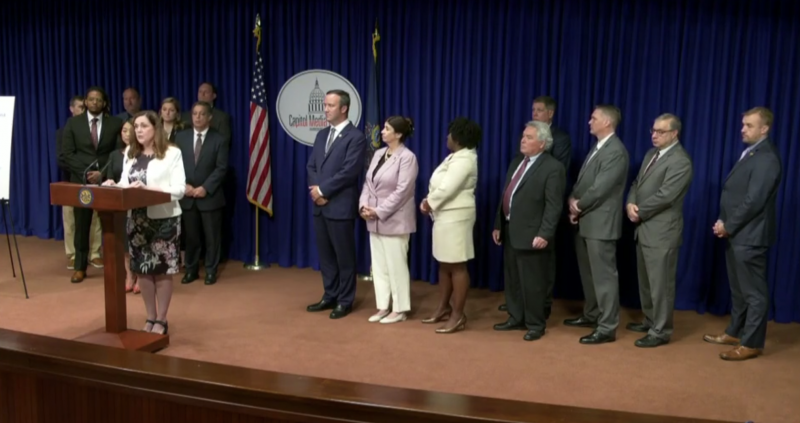
Pennsylvania’s Juvenile Justice Task Force just released its report and recommendations after a thorough, pandemic-disrupted process. The proposals promise to address a juvenile justice system that has been plagued by scandal, failure to deliver the public safety results communities deserve, and out-of-control costs.
The state’s $192,000 per year cost to house just one juvenile offender is one of the most outrageous signs of a system that is not working.
The task force offered 35 recommendations for addressing this failing system. Some of the most critical for Pennsylvania taxpayers to ensure due process, give those who have served their time a chance to clear their record, and eliminate excessive fines that put juveniles in debt.
At Tuesday’s press conference covering the report’s release, Rep. Tara Toohill highlighted that a lack of diversion options in some counties causes a minor offense to result in a juvenile going into the system, and being held. This disrupts their family life, and their education.
In Pennsylvania, 60% of the juveniles who are held in state facilities are there for a misdemeanor offense – and just 39% of those are offenses against another person. This means higher costs for taxpayers. Worse, for low-level offenders extended incarceration does not reduce recidivism, and research shows it can increase it.
The Juvenile Justice Task Force recommends expanding alternative options to arresting and detaining youth accused of low-level offenses. For those that pose no risk to the community, supervision and programming options make sense to address what is clearly a problem without creating worse outcomes for everyone.
Recommendations to ensure families and juveniles know their rights and receive appropriate representation in proceedings are commonsense, needed reforms to ensure due process.
Expungement clears, or seals the records of a conviction from public view. These records can still be seen, and used by the court system for any future criminal proceedings.
Once someone has served their time, there should be some limit to the collateral consequences they face, otherwise they can struggle to work, find housing, and progress in life. For youth, this means they often cannot begin their lives on solid footing. Since having a decent job is a key factor in reducing recidivism, this is a win for public safety.
One of the most important recommendations the task force makes, is to streamline, and make the expungement process standard statewide.
For cases that do not result in a conviction, the task force sensibly recommends immediately beginning the expungement process. After a youth offender that was not incarcerated completes their programming, the expungement process will automatically begin. And for offenders who were held in a juvenile facility or placed on probation, two years after completing their sentence expungement will begin (if they have not committed another offense).
These policies follow the lead of Pennsylvania’s first-in-the-nation Clean Slate law, which automatically seals records of cases that did not result in a conviction and misdemeanors after a period of time.
Fines and fees are another area where government has failed. High fines and fees often follow juvenile offenders long after their sentence, despite the obvious fact many of them are too young to have jobs. In Pennsylvania, some counties have an average fee burden of nearly $700.
The task force suggests focusing on offenders paying restitution and any fee required to administer it. Where there is a victim involved, they are owed recompense. Court system fines and fees would be eliminated.
Another core recommendation is that counties track and report data on their juvenile justice systems. It is incredibly important that officials and the public can see whether changes are working as planned. The public deserves to be confident that anything that goes wrong will be addressed, and that reforms achieve their positive goals.
As recommendations are implemented through legislation, it is important that savings from reforms are reinvested into new programs, and that Pennsylvania taxpayers do not have to take on new, costly burdens. The current system is already too expensive and inefficient.
The above recommendations we’ve highlighted enjoyed consensus or unanimous support among the task force members. Meanwhile, some proposals were less popular. There are points to be made for all recommendations, but many enjoy stronger support, and often these are the most significant measures.
Speaker Brian Cutler said the task force finidings, “present us with the opportunity to ensure our juvenile justice system rehabilitates our youngest offenders to not only create a positive path for them, but also to strengthens families, protect communities and create long-term benefits for all Pennsylvanians.”
The report and recommendations offered by the task force offer a great, needed blueprint to address scandals and high costs while boosting public safety and giving young people an opportunity to earn a second chance. The legislature will now get to work on making the plan a reality.

